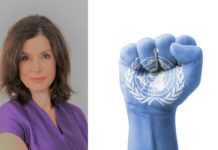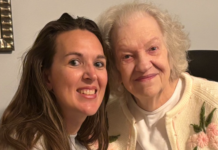Addressing the Roots of Racial Trauma: An Interview with Psychologist Lillian Comas-Díaz
MIA’s Hannah Emerson interviews Comas-Díaz on the need for culturally competent care in a medicalized and individualistic society.
Mad Science, Psychiatric Coercion and the Therapeutic State: An Interview with Dr. David Cohen
MIA's Peter Simons interviews David Cohen, PhD, on his path to researching mental health, coercive practices, and discontinuation from psychiatric drugs.
Can Critiques of Psychiatry Help us Imagine a Post-Capitalist Future? An Interview with Hans...
An interview with Hans Skott-Myhre on the seeds of post-capitalist subjectivity to be found in the writing of Franco Basaglia and R.D. Laing.
Bridging Critical and Conceptual Psychiatry: An Interview with Awais Aftab
MIA’s Justin Karter interviews psychiatrist Awais Aftab about how “conceptual competence” uses philosophy to transform psychiatry.
Combatting Structural Racism and Classism in Psychiatry: An Interview with Helena Hansen
MIA interviews psychiatrist and anthropologist Helena Hansen about bringing structural competency to psychiatry while rebuilding communities.
The Crisis in Psychiatry and The Slow Way Back: Interview with Vincenzo Di Nicola
Ayurdhi Dhar interviews psychiatrist and philosopher Vincenzo Di Nicola about his call for "slow psychiatry" and a renewed social psychiatry.
How Mad Studies and the Psychological Humanities are Changing Mental Health: An Interview with...
In this interview with MIA's Justin Karter, psychiatrist Bradley Lewis discusses the value of art, the humanities, and mad studies in shaping a richer understanding of psychological experiences.
Fascist Subjectivity and the Subhuman: An Interview with Critical Psychologist Thomas Teo
MIA's Tim Beck interviews critical psychologist Thomas Teo on how theory and research can do justice to the people it means to describe and explain.
How Western Psychology Can Rip Indigenous Families Apart: An Interview with Elisa Lacerda-Vandenborn
An interview with Elisa Lacerda-Vandenborn about the consequences \psychology and mental health treatment can have for indigenous children.
WHO and the Sea Change in Mental Health: Interview with Michelle Funk
MIA's Ana Florence interviews Michelle Funk about her leadership of the new WHO guidelines on rights-based mental health.
The Global ‘Mental Health’ Movement – Cause For Concern
On October 10th, 2018, World Mental Health Day, The Lancet Commission on Global Mental Health and Sustainable Development published a report outlining a proposal to “scale up” mental health care globally.
The Medicalization of Women’s Suffering: An Interview with Dana Becker
MIA’s Ayurdhi Dhar interviews Dana Becker about how therapeutic culture fails to adequately address women’s suffering.
Responsibility Without Blame in Therapeutic Communities: Interview with Philosopher Hanna Pickard
Hanna Pickard on the elusive middle ground between personal responsibility and systemic factors in our understandings of addiction.
Challenging Western-Centric Child Psychology: An Interview with Nandita Chaudhary
Ayurdhi Dhar interviews Nandita Chaudhary about children’s lives across cultures, the problems with global aid agencies and their interventions, psychology’s bias in the study of children, the limits of attachment theory and more.
Looking Beyond Self-Help to Understand Resilience: An Interview with Michael Ungar
Ayurdhi Dhar interviews Michael Ungar about how complex systems make us vulnerable and how resilience emerges in context-specific ways.
Opening Doors in the Borderlands: An Interview with Liberation Psychologist Mary Watkins
MIA’s Micah Ingle interviews Mary Watkins about reorienting psychology toward liberation and social justice.
Why Some Experts and Patients Want to Rename Schizophrenia: Interview with Raquelle Mesholam-Gately and...
MIA interviews Matcheri Keshavan and Raquelle Mesholam-Gately on their research with service users and consumers on renaming schizophrenia.
The Making of a ‘Madness’ That Hides Our Monsters: An Interview with Audrey Clare...
In this interview, Audrey Clare Farley reveals how our understanding of schizophrenia was built to avoid acknowledging sexual trauma, religious abuse, and racism.
Climate Change, Mental Health and Collective Action: An Interview with Jennifer Freeman
In an interview with MIA's Akansha Vaswani, narrative therapist Jennifer Freeman calls for a shift away from individualistic approaches to 'eco-anxiety' and toward responses that connect us all to a counter-tsunami of action for the planet.
Leading Psychology in Existential Times: An Interview with Kirk Schneider
MIA’s Justin Karter interviews humanistic-existential psychologist Kirk Schneider about how psychology can play a role in confronting the political, social, and climate crises facing humankind.
From Freud to Fanon: How Daniel Gaztambide is Redefining Psychoanalytic Practice
In this interview, Daniel Gaztambide discusses how decolonial perspectives can transform psychoanalytic practice.
Moving Global Mental Health “Outside Our Heads”
On MIA Radio we interview Dr. Derek Summerfield, honorary senior lecturer at the Institute of Psychiatry in London, former Research Associate at the Refugee Studies Centre at the University of Oxford and consultant at Oxfam.
Global Mental Health – The Hypocrisy of Mental Health in The Age of Austerity
Dr. China Mills shares her reactions to recent events focused on Global Mental Health, elaborating on deeper issues with the framing of mental health as a “burden” and the underlying implications of coloniality, technology, and medicalization.
Constructing Alternatives to the DSM: An Interview with Dr. Jonathan Raskin
Dr. Raskin discusses psychotherapists’ dissatisfaction with current psychiatric diagnostic systems and explores alternatives.
How to Know What We Don’t Know: An Interview with Psychologist and Novelist Jussi...
MIA's Gavin Crowell-Williamson interviews the neuropsychologist and novelist Jussi Valtonen about how novels can lead us to see the limits of our understanding.

































